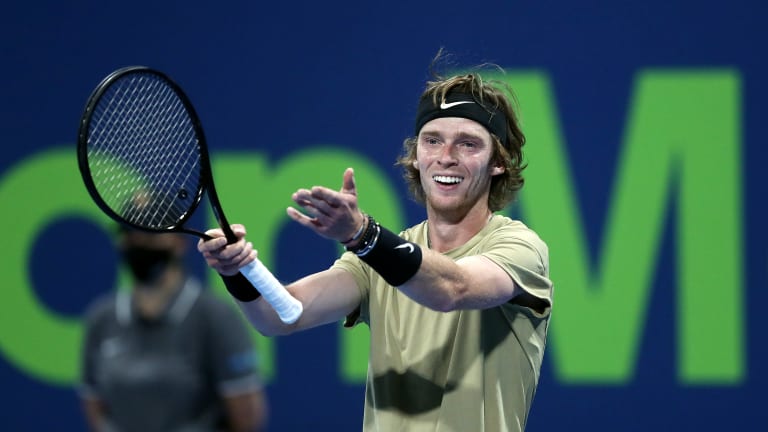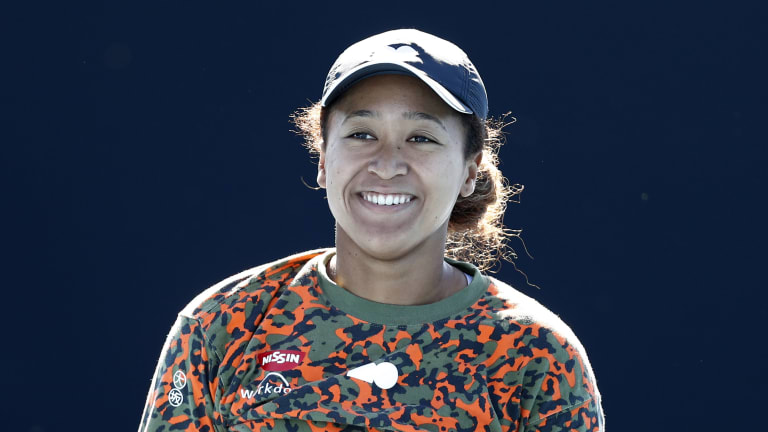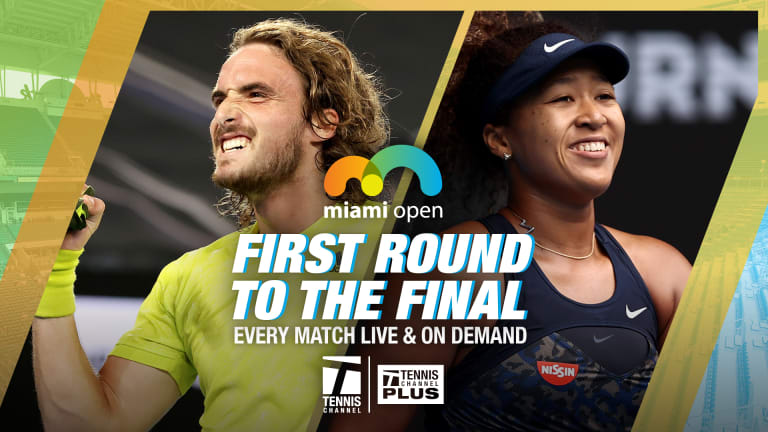Miami, USA
What Osaka and Rublev have to prove is what separates them in Miami
By Mar 24, 2021Miami, USA
In beating idol Novak Djokovic, Jakub Mensik came of age in Miami
By Mar 31, 2025Miami, USA
Can Jessica Pegula step out of comfort zone on clay?
By Mar 31, 2025Miami, USA
Jakub Mensik, Miami champion, was going to pull out of the tournament an hour before his first match
Mar 31, 2025Miami, USA
Teenager Jakub Mensik denies Novak Djokovic 100th title in Miami Open upset
By Mar 31, 2025Miami, USA
Aryna Sabalenka takes aim at Iga Swiatek's dominance of the European clay season
By Mar 31, 2025Miami, USA
Novak Djokovic vs. Jakub Mensik: Where to watch, and who will win, their Miami Open final
By Mar 30, 2025Miami, USA
Roger Goodell watches on as Aryna Sabalenka defeats Jessica Pegula in Miami final
By Mar 29, 2025Miami, USA
Aryna Sabalenka masters Jessica Pegula again to win Miami Open
By Mar 29, 2025Miami, USA
19-year-old Jakub Mensik to face Novak Djokovic in Miami Open final
By Mar 29, 2025What Osaka and Rublev have to prove is what separates them in Miami
Naomi Osaka and Andrey Rublev have both been on a roll. But this week at the Miami Open, they’ll face different challenges: Rublev will try to show he can win on a bigger stage, while Osaka will try to win on one that’s slightly smaller.
Published Mar 24, 2021
Advertising

What Osaka and Rublev have to prove is what separates them in Miami
© Getty Images
Advertising

What Osaka and Rublev have to prove is what separates them in Miami
© copyright Darrian Traynor
Advertising

What Osaka and Rublev have to prove is what separates them in Miami